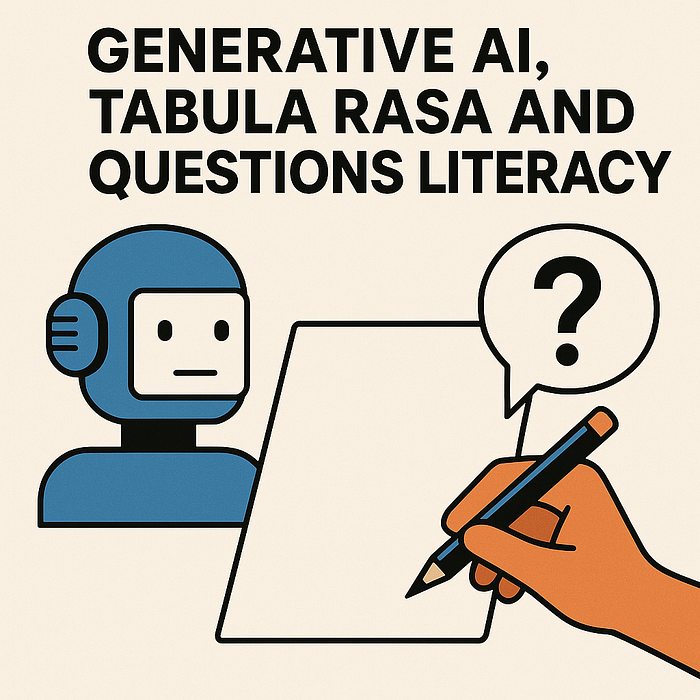Essay by Stefaan G. Verhulst: “Generative Artificial Intelligence (AI) has given millions of people something extraordinary: a way to move forward from a tabula rasa. The once-intimidating blank page — whether in writing, coding, designing, or imagining — no longer induces paralysis. With a few keystrokes, ideas flow, drafts appear, and tasks that once demanded hours of toil now unfold in seconds. Never before has human creativity been so efficiently scaffolded.

Yet this newfound fluency comes at a cost. In outsourcing the burden of beginnings, we risk dulling the more subtle and essential capacity of inquiry — the art of asking good questions. As generative systems like ChatGPT, Gemini, and Claude proliferate, they seem to provide answers for everything. But these systems, for all their prowess, only ever respond to prompts, and they do not provide intentions or understandings behind their replies. They do not think; they predict. What appears as insight is, in fact, the statistical sequencing of tokens — the next likely word rather than a considered idea. In short, generative AI simulates reasoning without ever engaging in it.
All of this means that the value of the work generated by these remarkable systems continue to depend critically on the quality of the questions we ask–the prompts we pose, and the nudges we offer to coax alternative statistical pathways. We are, in short, increasingly living in an era that is answer rich, yet questions poor. The risk is that we overlook this, in the process losing our critical — and deeply human — capacity to ask the questions that truly matter…(More)”.